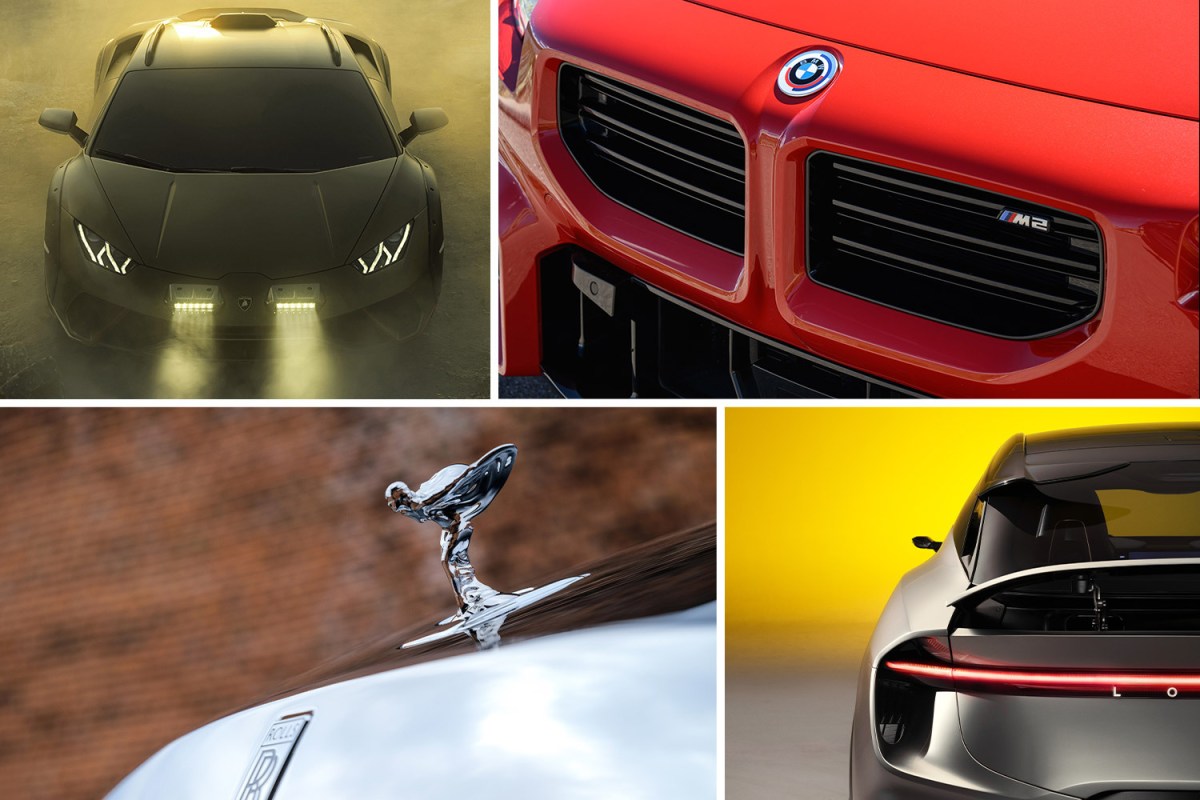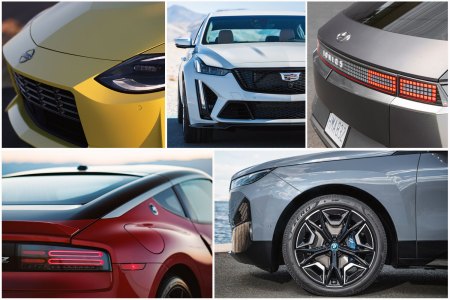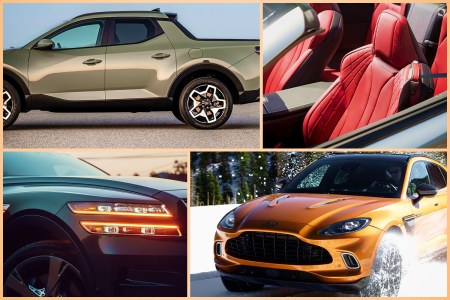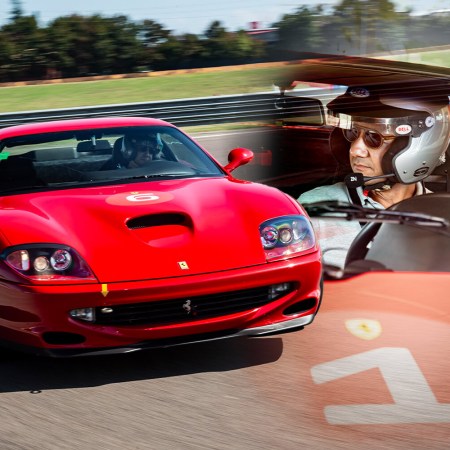Here at InsideHook, we drive, dissect and discuss all types of cars. The only criteria? That you, our readers, may theoretically want to own them. This year, that meant our automotive writers got behind the wheel of everything from a family-friendly minivan (because it’s a legitimately suave contender to all the SUVs people default to these days) to a $2.1 million Jaguar D-type (because it might just be the coolest vintage car on the planet that’s not exactly vintage). We don’t review every car that’s churned out by every automaker, just the ones that pique our interest — and that still leaves us with a spectrum that’s wider than the grille on the hottest collector vehicle of the year.
To encompass that array of cars, trucks and SUVs, we decided to double up on our year-end list and choose our 20 favorite vehicles of the year. Once again we have Benjamin Hunting, who tackles most of our automotive reviews, and who chose the 10 vehicles that he’d recommend you buy in the coming year; but we’re also adding the expertise of Basem Wasef, who skews towards the luxury marques, and selected the 10 standouts from the likes of Porsche, Ferrari, Rolls-Royce and other brands you dream about at night.
There’s something for everyone on our list of the 20 best cars of 2023. The biggest surprise, though, is that one brand not only appeared on both of their lists, but it appears a total of three times. Read on to find out whose lineup is trouncing the competition, and what badge you should be considering in the new year.
Benjamin Hunting’s Top 10:
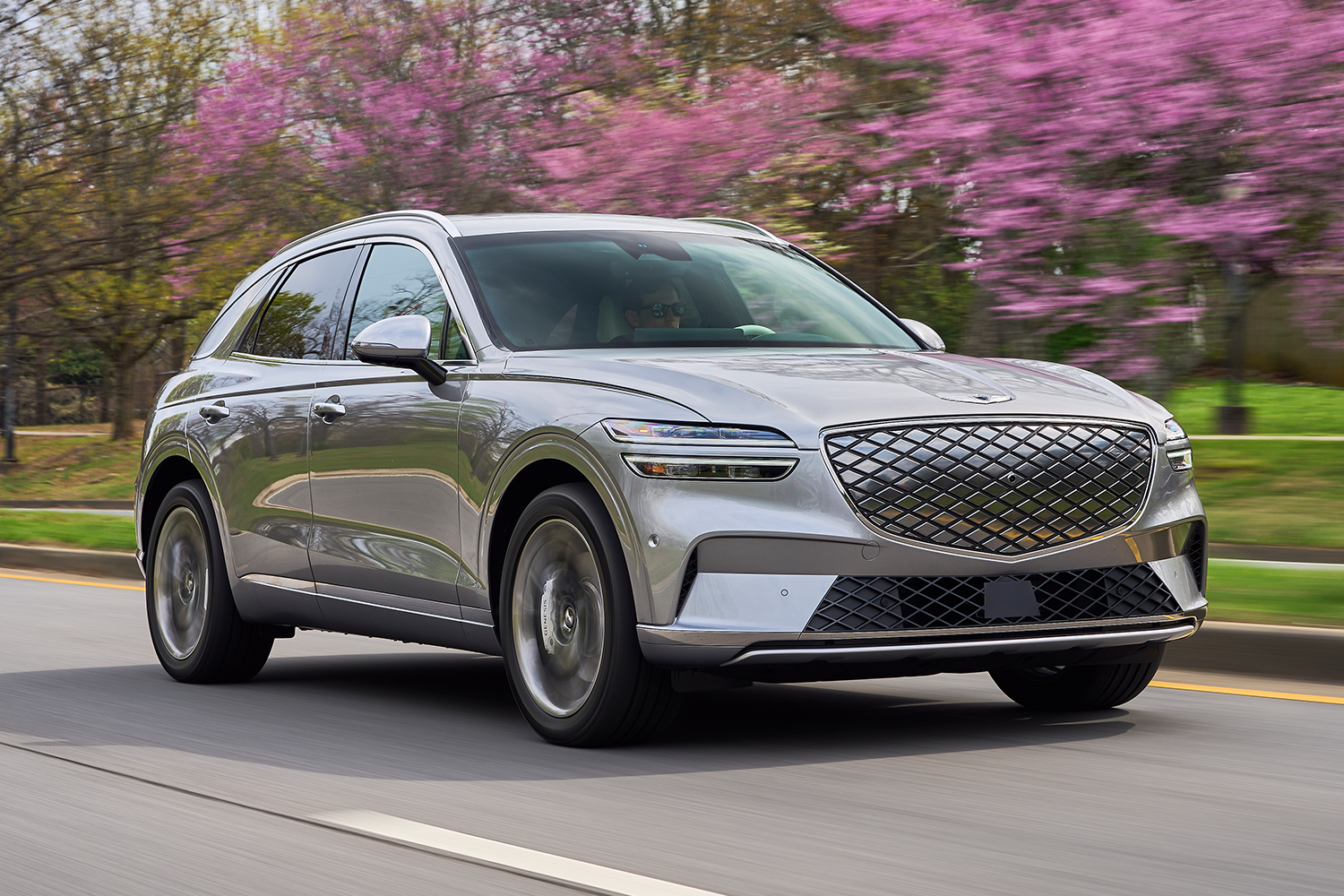
Genesis Electrified GV70
Genesis is dead set on proving that EV conversions can be not only just as good as their gasoline equivalents, but also nearly as effective as ground-up battery-powered machinery. The Electrified GV70 may be saddled with awkward nomenclature, but its strong acceleration, excellent road manners and exceptional interior preserve the best aspects of its gas-only sibling while adding an emissions-free dimension that is close to challenging battery-only platforms in terms of range.
Read our full review here.
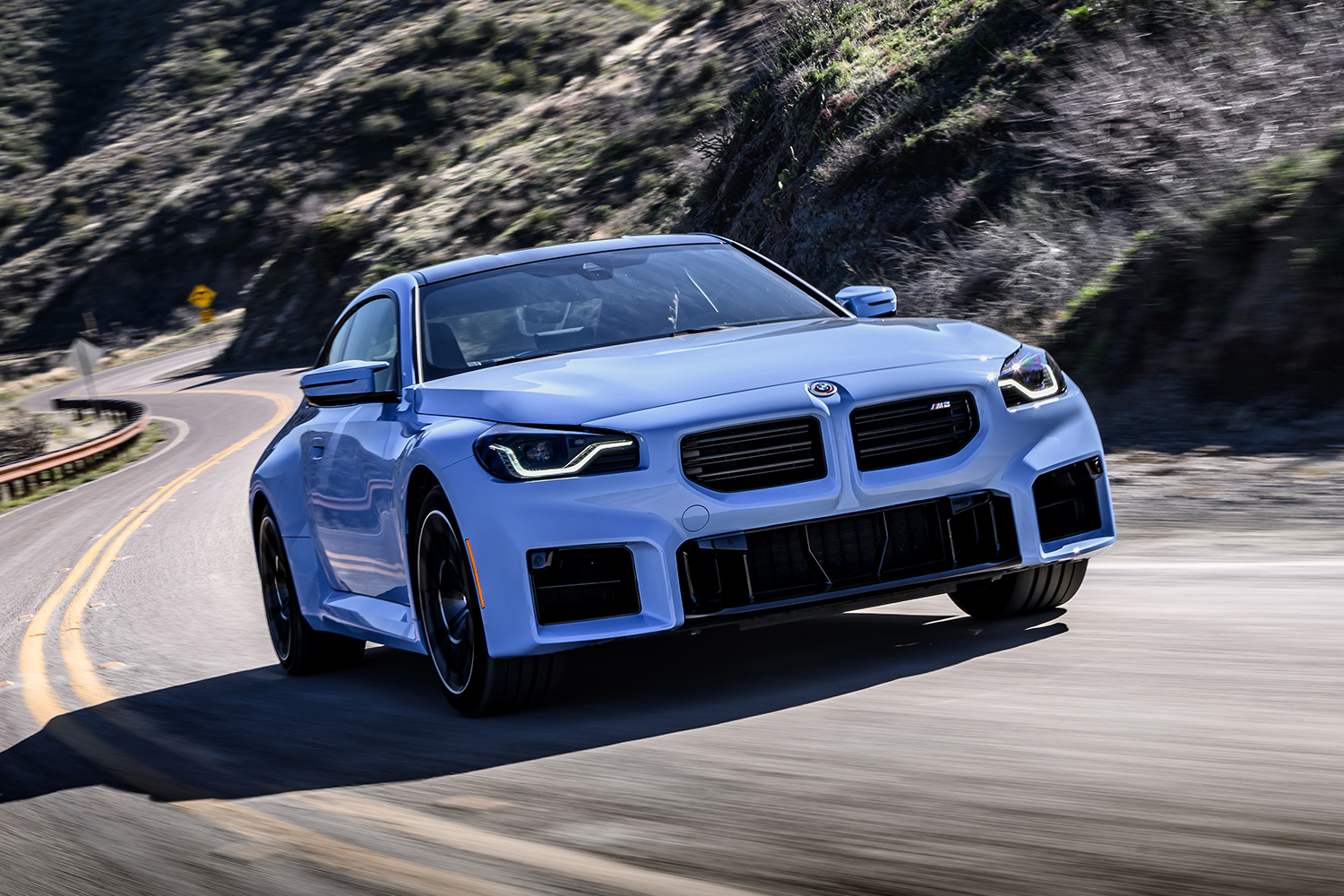
BMW M2
The redesign of BMW’s entry-level M machine received more than its fair share of criticism due to its bigger, blockier turn away from the svelte curves of the previous model. All is forgiven once you slip behind the wheel, however, and bask in the most connected driving experience in the entire BMW portfolio. One of the last stands for three-pedal luxury sports cars, the M2 gaps its showroom siblings on fun factor.
Read our full review here.
Want to See What We Chose Last Year?
The 10 Best Cars, Trucks and SUVs We Drove in 2022
Including five electric vehicles, a droolworthy sedan and the best pure sports car you can buy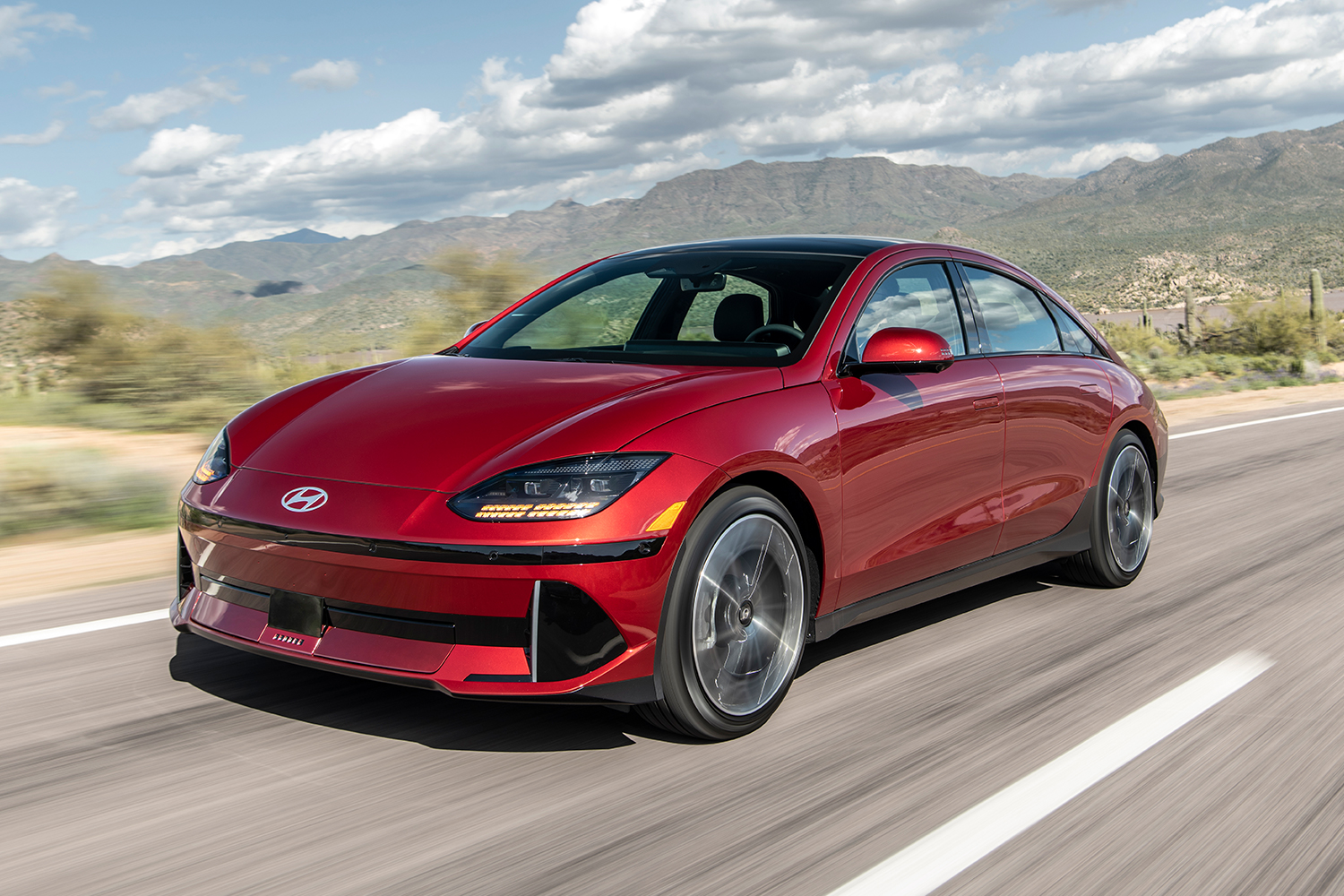
Hyundai Ioniq 6
How many Hyundais out there have passersby asking you if you’re driving a Porsche? The Ioniq 6 forges its own unique visual path, continuing the brand’s trend of distinctive shapes for its highly effective E-GMP electric vehicle platform, and in doing so it proves that exceptionally quick, range-gifted EVs don’t have to look like their best bits were worn off in the wind tunnel.
Read our full review here.
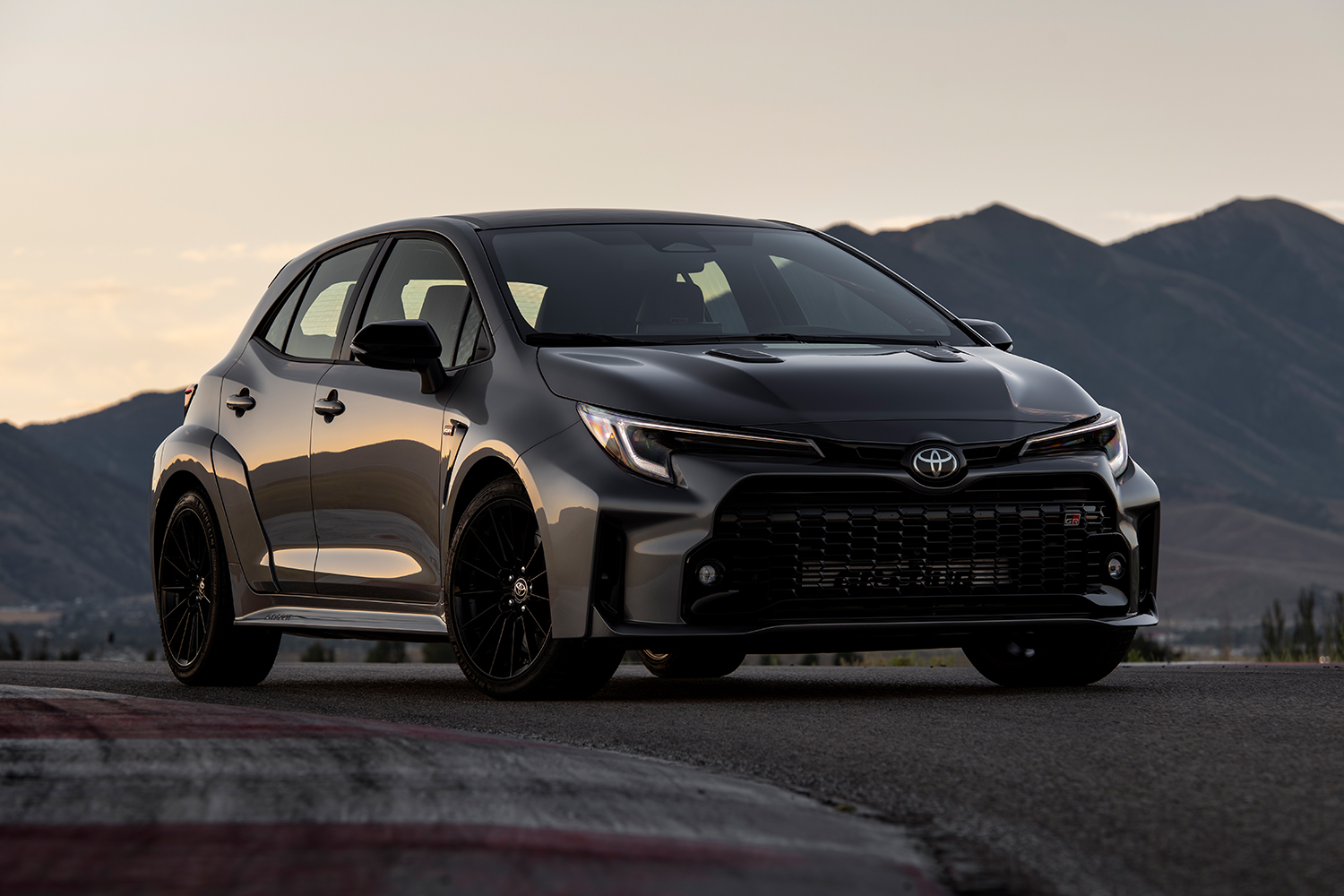
Toyota GR Corolla
Few would have pegged Toyota for producing one 2023’s most exciting rides, but the GR Corolla cuts through the noisy hot hatch market with a buzz saw three-cylinder turbo, rally-baiting all-wheel drive and the kind of rough around the edges personality that stands in stark contrast to the field of usual five-door suspects. It’s refreshing to drive a car that’s willing to shun the digital filters that so often intervene between pilot and passion in modern performance vehicles.
Read our full review here.
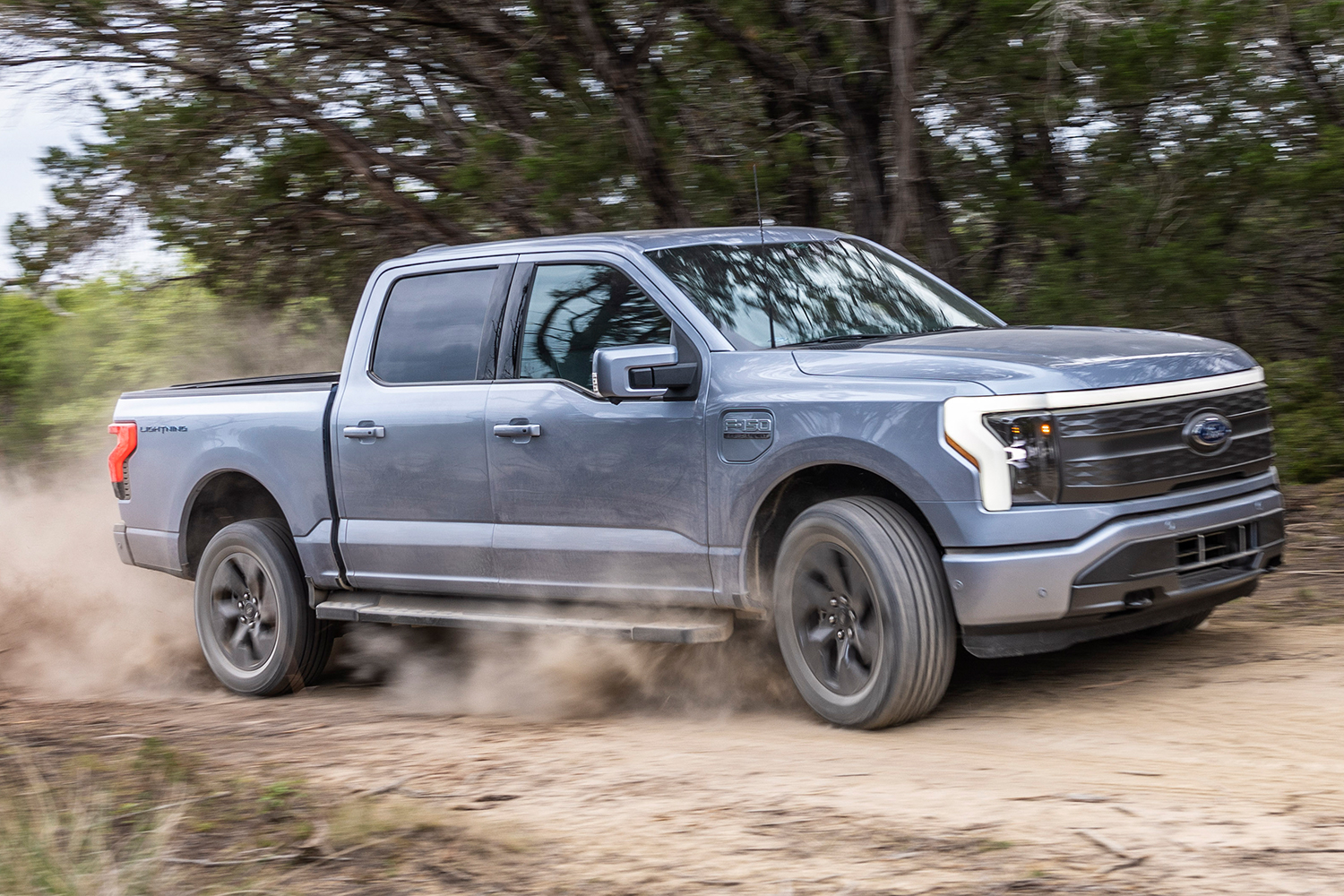
Ford F-150 Lightning
In some ways, the Ford F-150 Lightning feels like an obvious play: stuff the Blue Oval’s biggest battery into its largest pickup platform and watch the sales roll in from buyers looking to beat back range anxiety. Turning away from the somewhat dubious efficiency of such an overweight EV, it’s undeniable that the Lightning is able to sell electrification to a demographic that may have been previously allergic to the benefits of going green, while also delivering exceptional practicality by leveraging the storage possibilities of a frunk and the ability to serve as a rolling power source for your house, your power tools and even your other electric vehicles.
Read our firsthand charging test here.
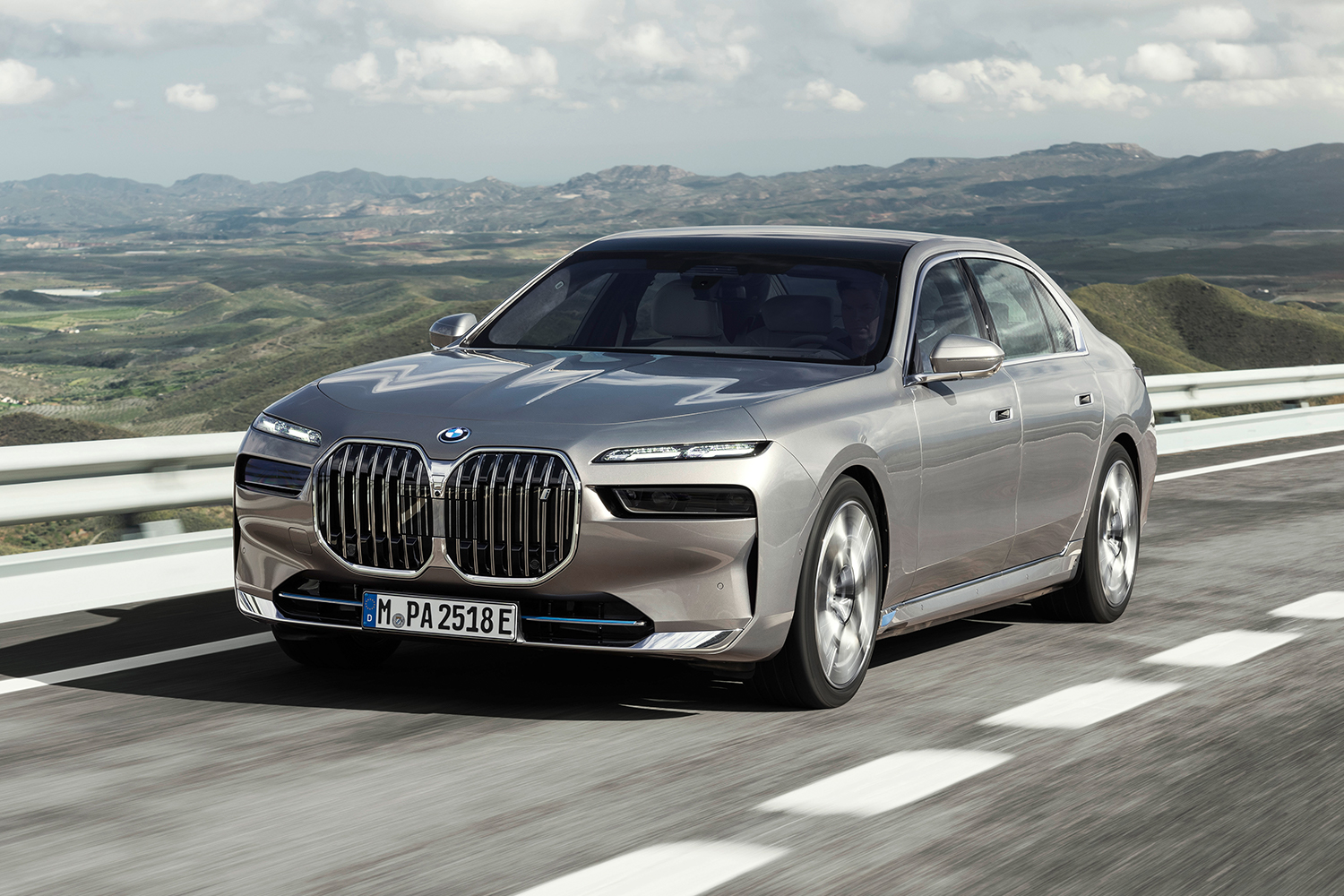
BMW i7
If your electric dreams tend more towards extroverted examples of conspicuous consumption, then the BMW i7 might make an even bigger splash than the plus-size F-150 Lightning. Featuring over-the-top extras like a door-to-door drop-down LCD flat panel video screen for the rear seat, and sheet metal that calls to mind a rolling bank vault plopped down in the present from some futuristic urban tableau, the i7 can also count top-notch driving range, gobs of power and cabin opulence that propels it ahead of more austere German rivals. Oh, and it makes a pretty sweet lifeboat in an ice storm blackout, too.
Read our full review here.
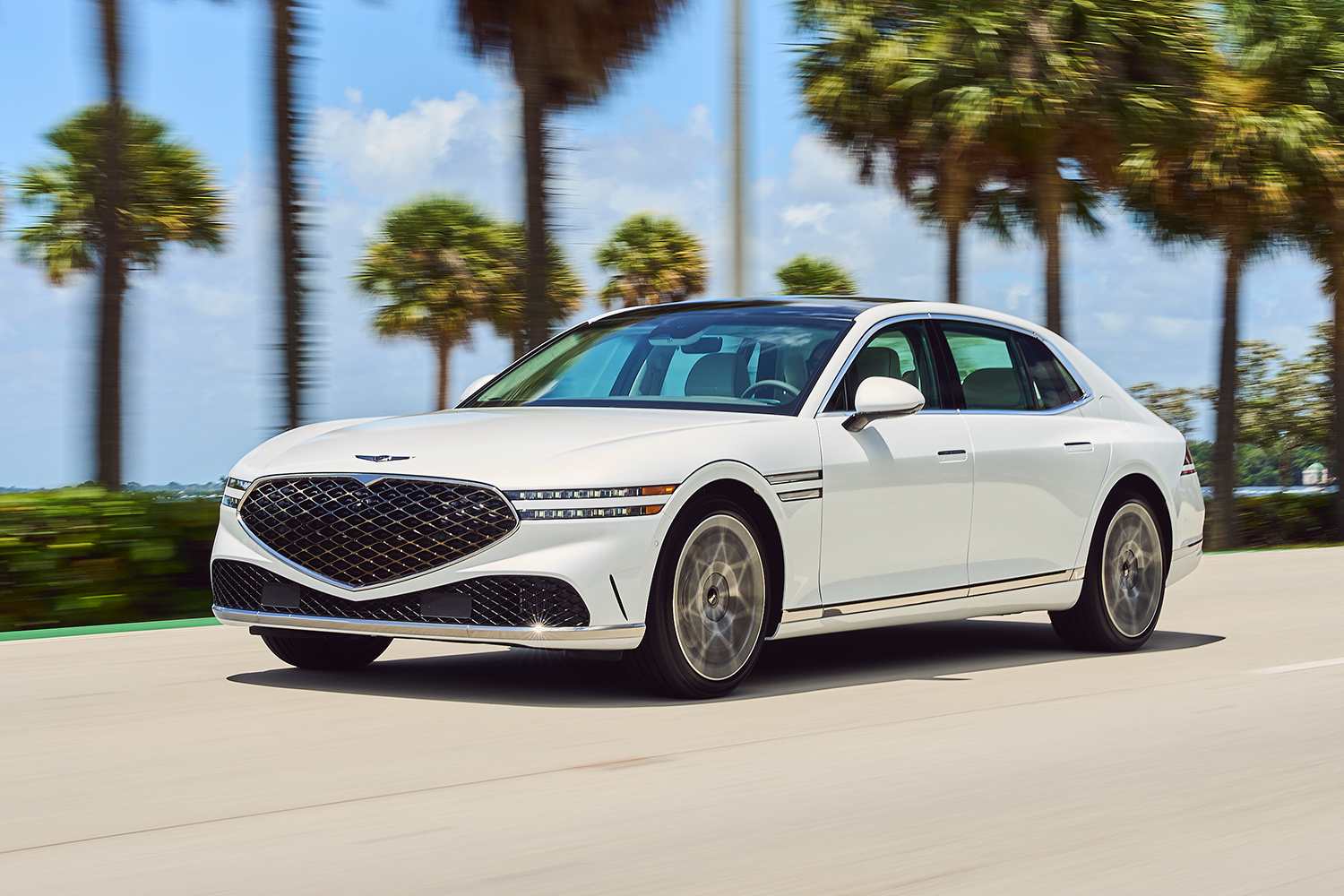
Genesis G90
If you prefer your old-school luxury paired with a purring engine rather than a silent electric motor, Genesis has you covered with the G90. This car distills the essence of what once made traditional full-size sedans the executive transporter of choice before SUVs blotted out the luxury sun. It does so by forgoing the usual caveats about European reliability and accentuating the detail and materials that have elevated Genesis cabins above the rest of the pack. Think of it as a private train car whose full-recline rear seats and seemingly endless creature comforts will keep you from pining for the pretense of off-road chops.
Read our full review here.
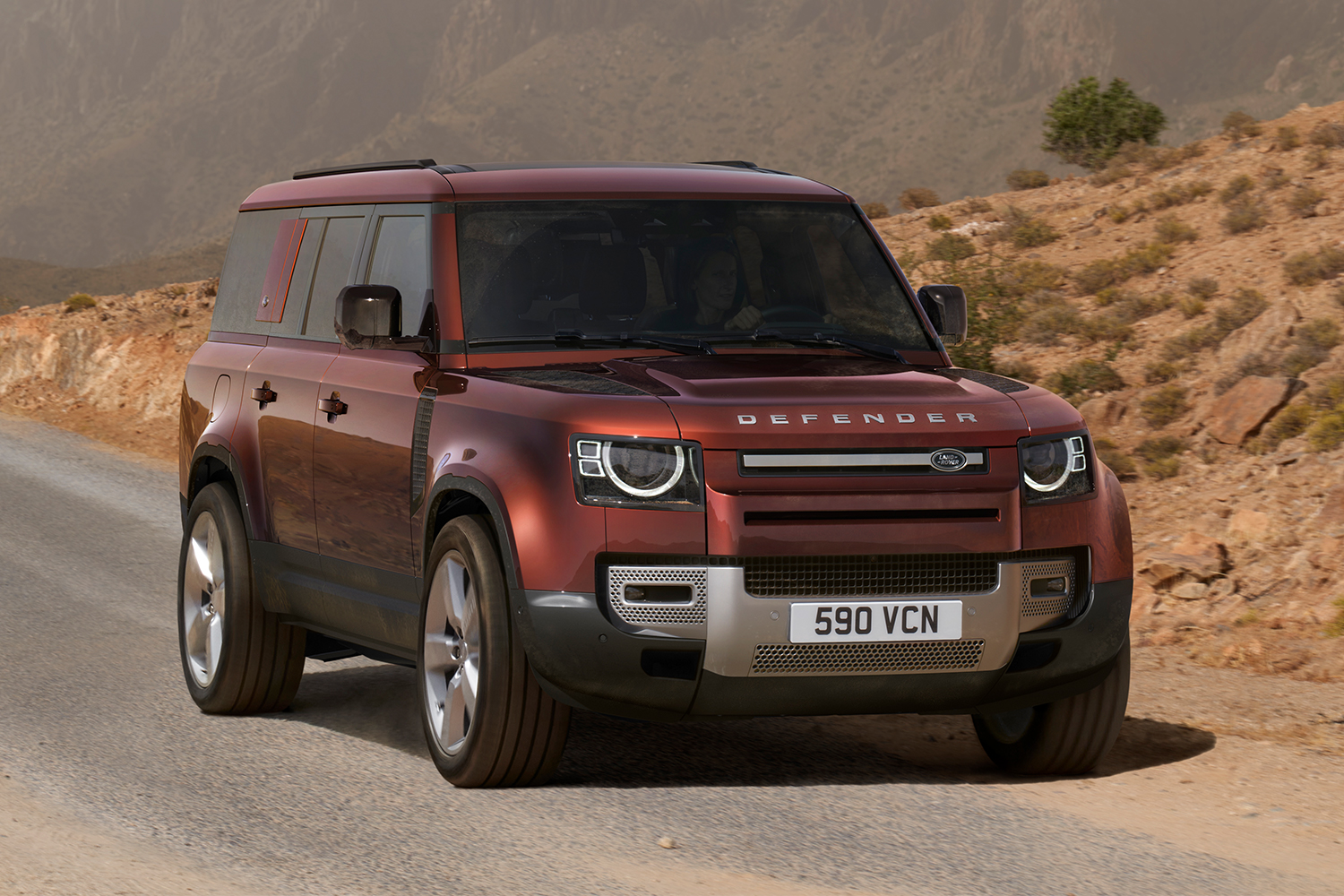
Land Rover Defender 130
Should the rough stuff actually appeal — and if you feel the need to bring the entire family along on your next off-pavement expedition — consider tapping in the Land Rover Defender 130. The longest of the three available Defender iterations, adding the third row arguably amps up the sport-utility’s appeal by giving it a true leg up over nearly any other ruggedized option out there. You’re simply not going to fit seven people inside a Wrangler or Bronco, and this Land Rover’s ability to let you get lost on the weekend while still tagging in for Monday to Friday commuting duties is a clear advantage.
Read our full review here.
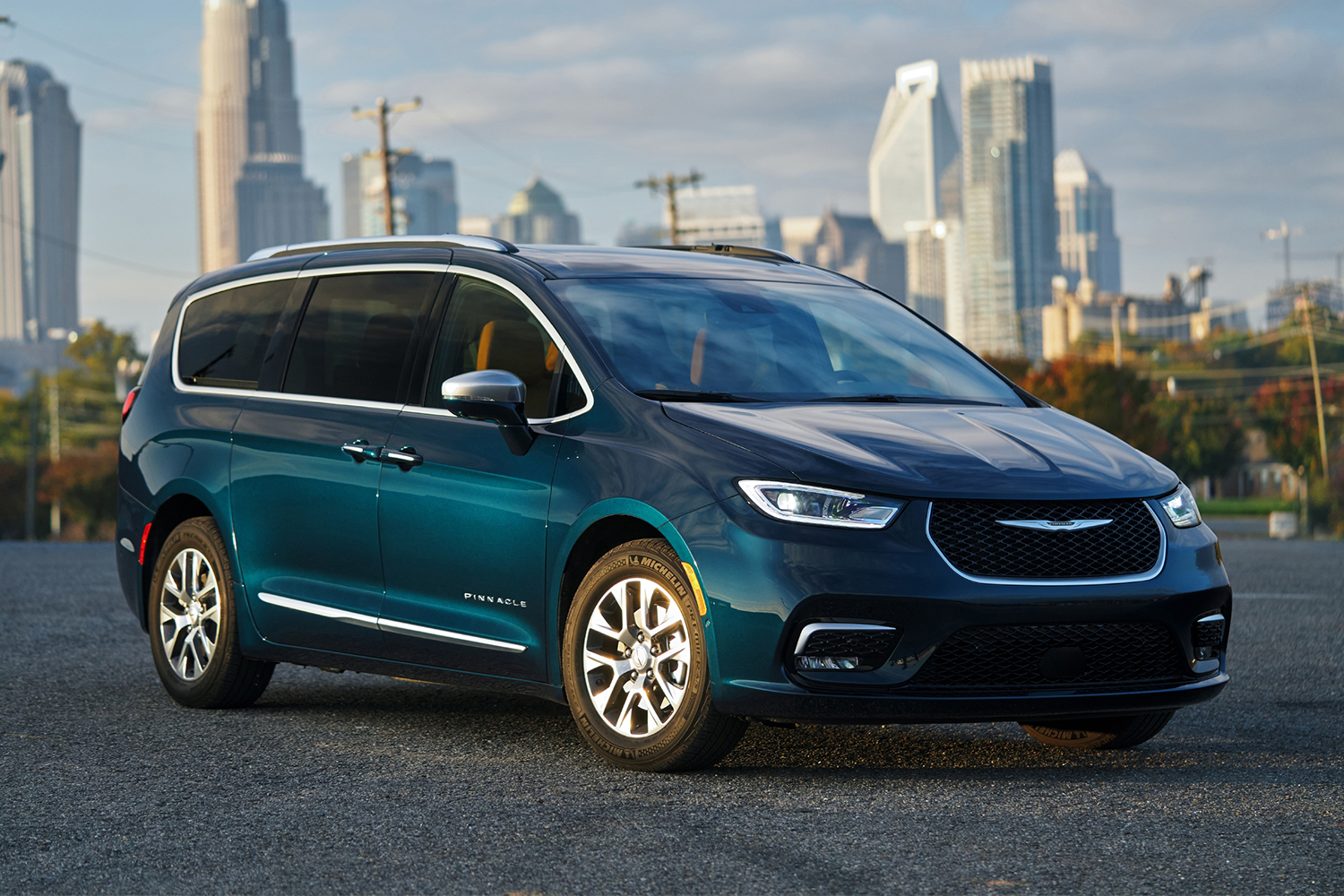
Chrysler Pacifica PHEV
The Chrysler Pacifica plug-in hybrid represents a luxury “third space” that has yet to be colonized by the usual suspects. More practical than any SUV when it comes to both cargo and passenger space, respectably sumptuous and upscale in terms of its interior fixings, and offering the kind of fuel efficiency and legitimately useful electric-only operation that is often missing from the three-row people-mover segment, the Pacifica PHEV posits a world where minivans are once again cool, and you dream of having one in your driveway.
Read our full review here.
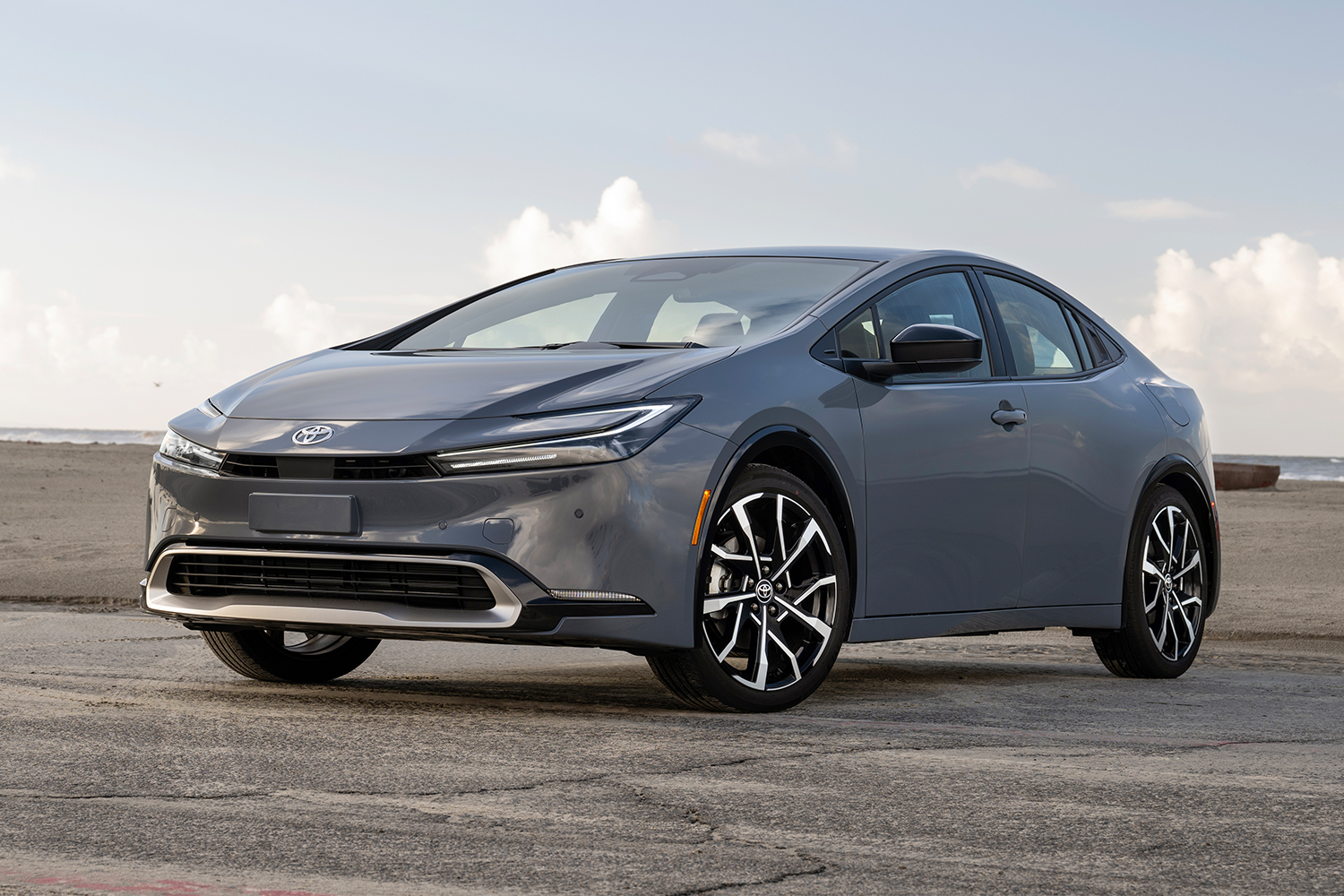
Toyota Prius Prime
How does a vehicle like the Prius Prime make its way onto the year-end best list of anyone not self-described as a fun-shunning fuel miser? It turns out that after years of focusing exclusively on the Prius’s frugality, Toyota finally decided that practical and economical automobiles could also do with a dash of visual appeal. Although by no means a sporty ride, the newly sleek Prius Prime plug-in boasts 100 additional horsepower compared to last year’s model without much sacrifice in terms of efficiency.
Basem Wasef’s Top 10:

Porsche 911 S/T
Porsche 911s have been in the headlines lately for all the wrong reasons, including (but not limited to) ever-astronomic MSRPs, the seemingly endless spiral of insider trading that leads to obscene dealer markups and unprecedented levels of smugness from owners who gravitate towards slant-tailed 911 models. The 911 S/T single-handedly shirks stigma by stubbornly sticking to its enthusiast-focused guns. Not only is it the lightest 911 in the lineup, it’s also the purest, packing a naturally-aspirated 518-horsepower flat six that screams to 9,000 rpm, a good old-fashioned manual transmission and shortened gears for even punchier acceleration. It also lacks bells and whistles like rear-wheel steering. Yes, it’s expensive (starting at $290,000). And with all 1,963 units already sold out, it’s likely to only get more valuable with age. But as a pure sports car focused on driver satisfaction, it doesn’t get much better than the 911 S/T at any cost.
Read our reviews of two other Porsche 911s we recommend: the Carrera T and the Sport Classic.
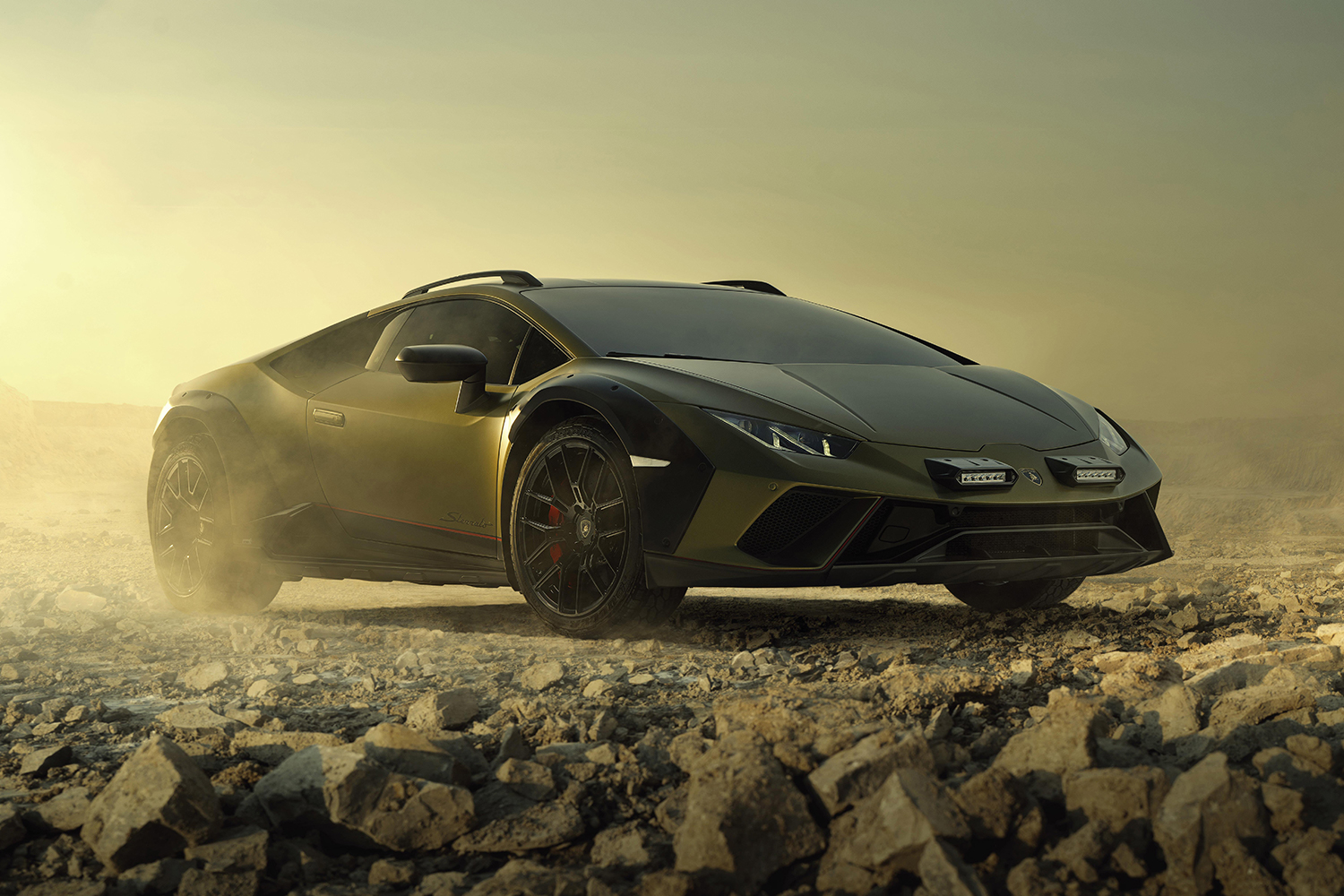
Lamborghini Huracán Sterrato
Lamborghinis are supposed to go fast, turn quick and rip around a racetrack at breakneck speeds. The Sterrato flips a bird to convention by de-tuning its V10 to “only” 602 horsepower, raising its ride height and rolling on knobby off-road tires. This formula shouldn’t be riotously fun, but I couldn’t stop giggling while slipping and sliding around town in this visually and viscerally loud sled. To that point, I can only imagine how hilarious it must be on a trail, as Lambo forbade me from off-roading my loaner. Regardless, the Sterrato marks the final edition of Lamborghini’s Huracán; if their future products are as irreverent as this rally-spec supercar, the future’s so bright they’ve gotta wear shades.
Read our review of the other off-roading Lamborghini.
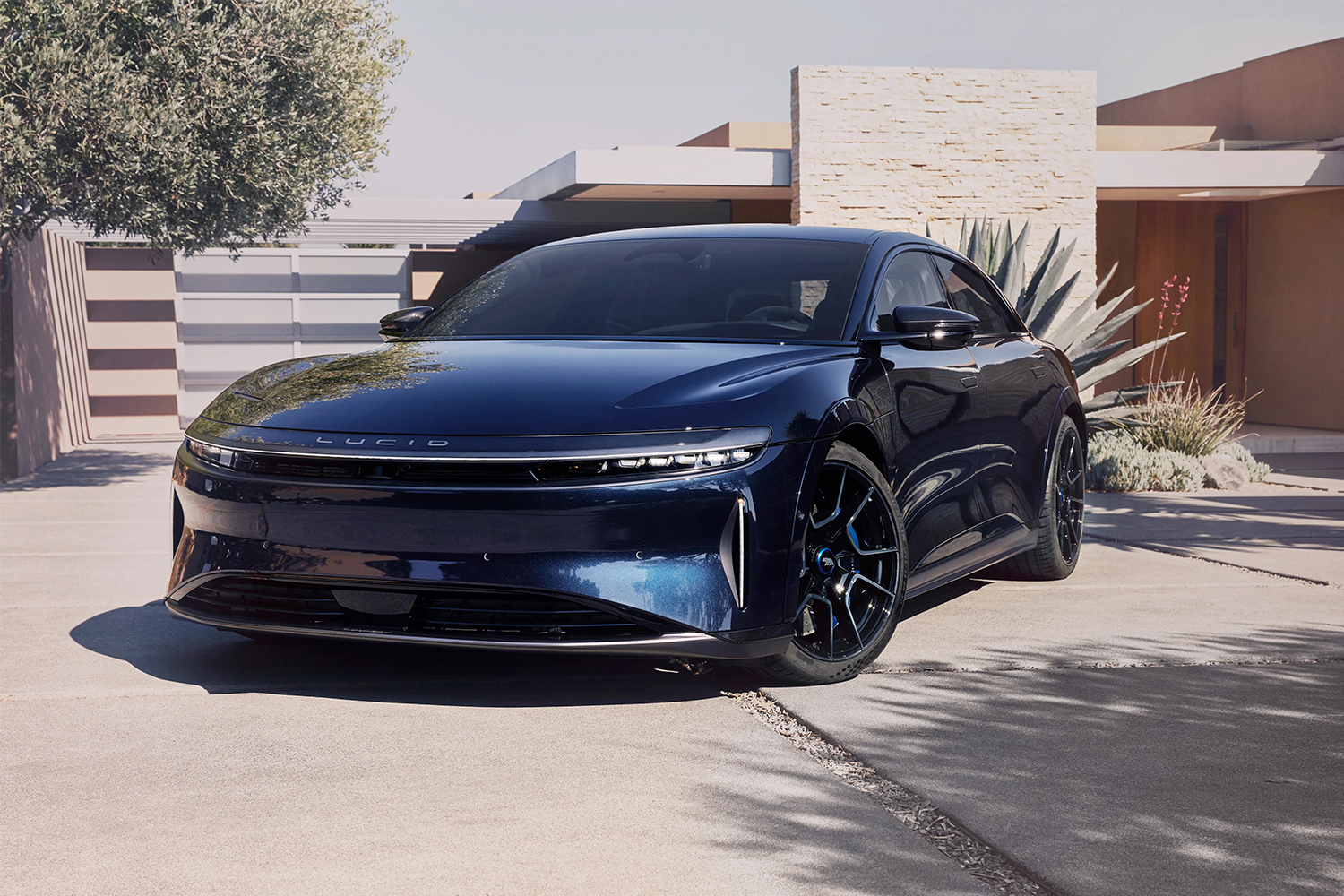
Lucid Air Sapphire
If Lucid’s plummeting stock is any indication, the California-based, Saudi-funded company might have blundered by debuting a sedan first and announcing that their long-awaited Gravity SUV won’t be available until late 2024. All that’s a shame, because the 1,234-horsepower Lucid AIr Sapphire is one of the most satisfying sedans money can buy, EV or otherwise. Busting 0 to 60 mph in a scant 1.89 seconds, the 205 mph Sapphire ticks virtually every box imaginable: blinding power, absolute comfort and 427 miles of range. Shame its quarter-million-dollar price tag will likely limit its reach.
Read our full preview of the new Gravity SUV here.
…And the Year Before That?
The 10 Best Cars, Trucks and SUVs We Drove in 2021
Including a truck that’s not a truck, a masterclass in opulence and the best possible argument against gasoline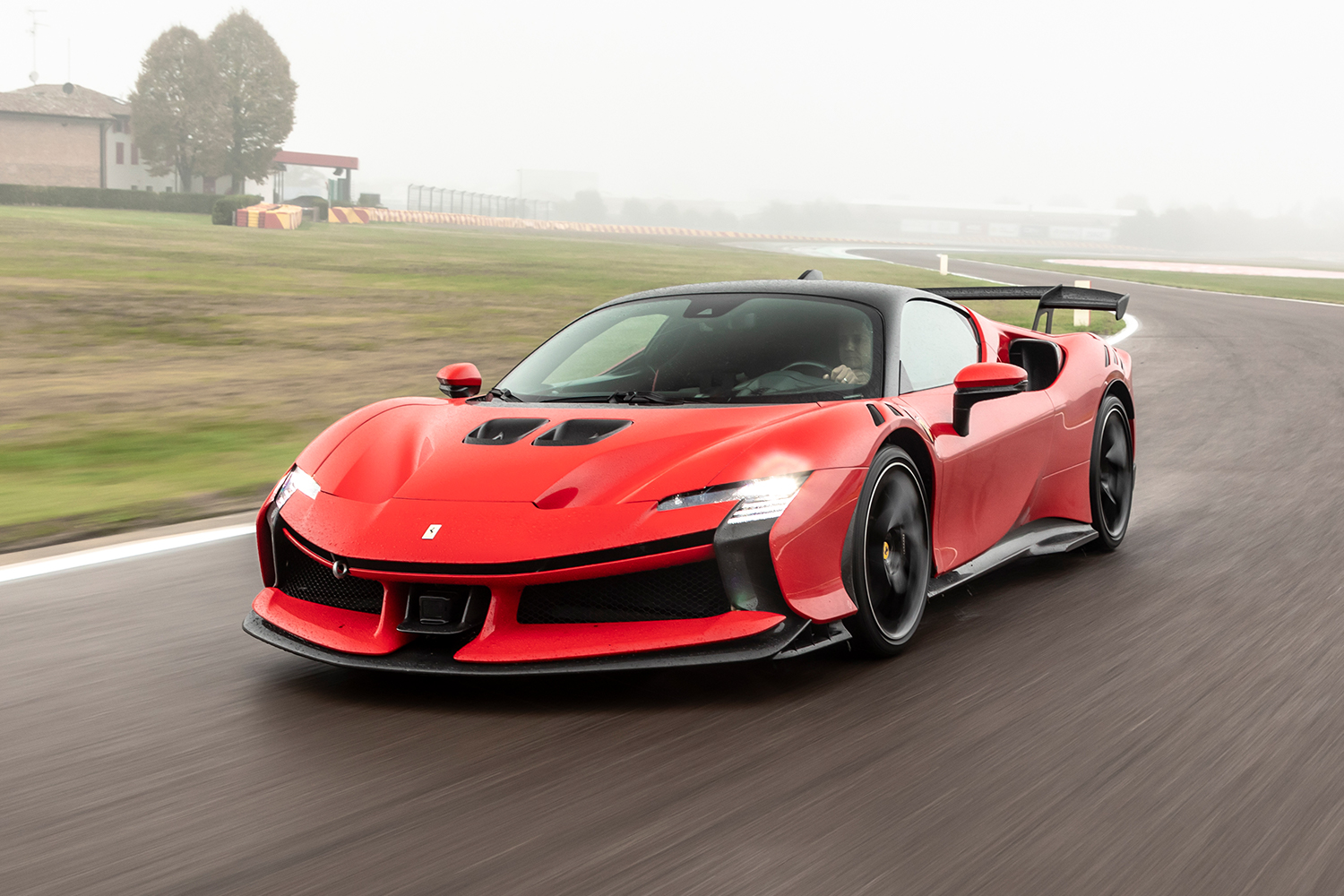
Ferrari SF90 XX Stradale
Ferrari’s double-X-rated supercar throws the kitchen sink at ultra-high performance, to staggering effect: a twin-turbo V8, three electric motors, and enough scoops, spoilers and aero tricks to produce an elephantine 1,168 pounds of downforce at 155 mph. It wasn’t the XX’s outrageous specs that knocked me out during a test drive at Ferrari’s private Fiorano Circuit, but rather that its amplified persona made it feel like a literal race car for the road. Louder, brasher, and importantly, more eye-popping than the standard SF90, the XX represents everything that makes Ferrari a carmaker to covet.
Read our firsthand account of driving at Fiorano here.
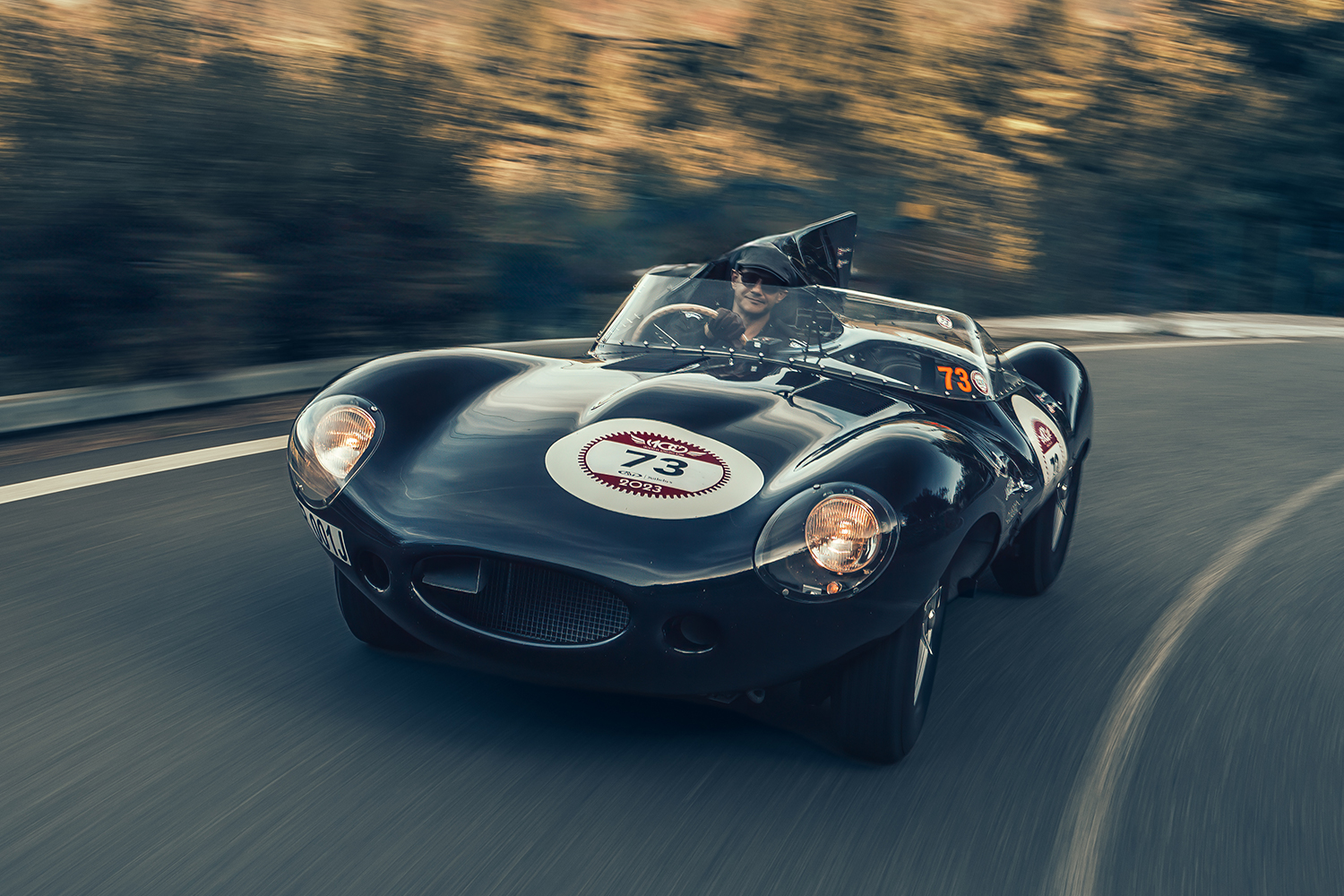
Jaguar D-Type Continuation
Among the inarguable tenets of automotive truth is the claim that the Jaguar D-type is gorgeous. Furthering its case is the fact that this slinky two-seater won the grueling 24 Hours of Le Mans not once, not twice, but three times in a row between 1955 and 1957. Working under the premise that only 75 of the original 100 cars were built, Jaguar Classic is producing 25 so-called continuation versions of the D-type for a cool $2.1 million a pop. I was fortunate enough to pilot one of these gems through Tuscany in a road rally to remember, and walked away wanting to sell internal organs for the opportunity to bring a soulful D-type home with me.
Read about our trip through Tuscany in the D-type here.

1930 Mercedes-Benz SS Cabriolet
The Maharaja of Kashmir was a particular fellow, commissioning his 1930 Mercedes-Benz SS Cabriolet to match his yacht. As one does. Thankfully, he didn’t drive his baby much, which meant this immaculately finished machine has managed to retain 95% of its originality, making it a time capsule for an era when a 7.1-liter supercharged engine that sounds like a screaming elephant under boost seemed perfectly sensible for the one-percent. Mercedes-Benz pulled this rare beast, valued at around $25 million, from their museum for a rally of similarly rare 1920s and 1930s-era models. To say they don’t build ‘em like this anymore is an understatement: This Cabriolet drives with the stateliness of an oil mogul and the presence of a freight train, making it a priceless example of an era gone bye.
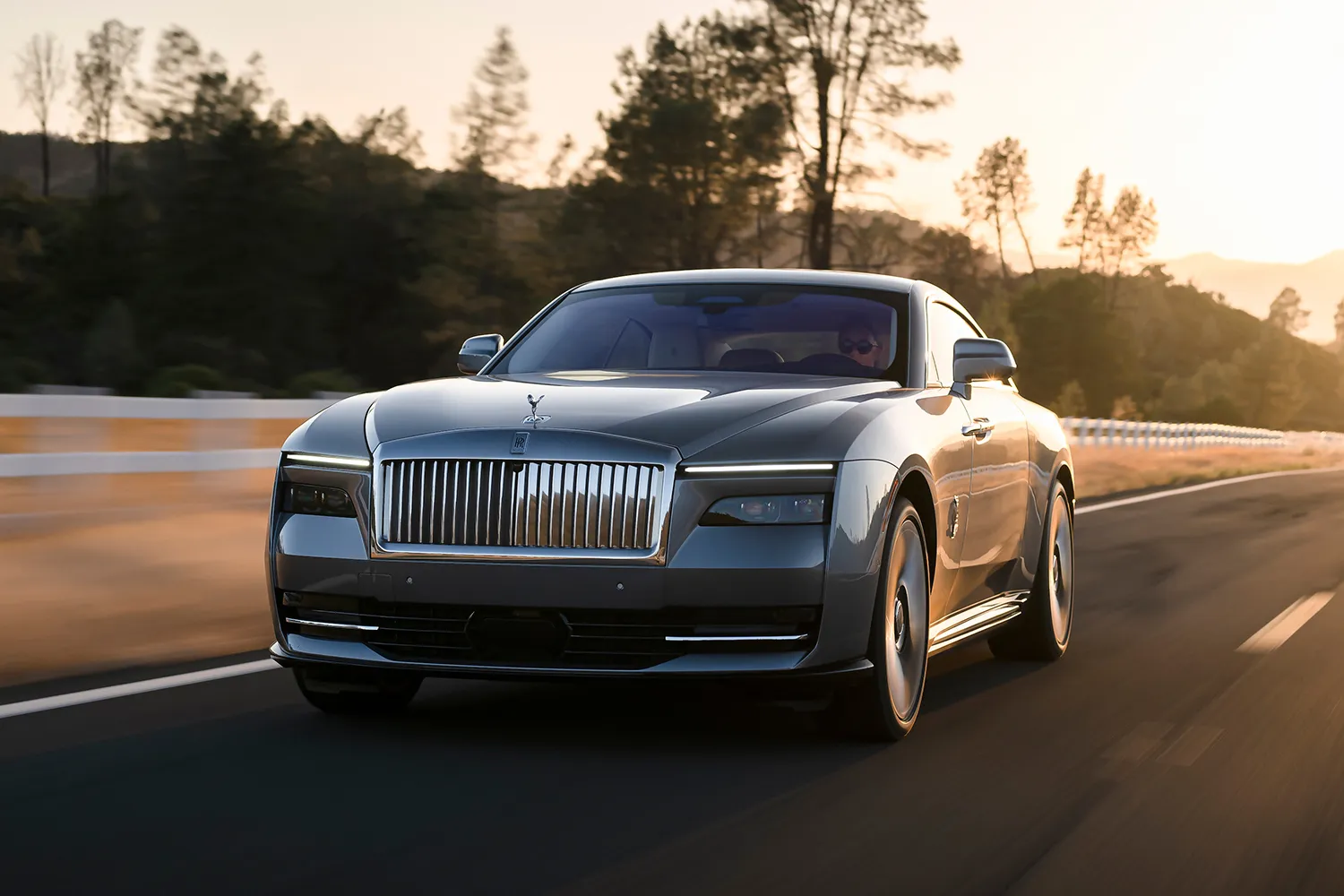
Rolls-Royce Spectre
The trouble with most EVs is that they don’t usually feel consistent with legacy brands — and why upstarts like Tesla can build an identity from scratch. The disarming thing about the Spectre is that it’s arguably the most Rolls-Royce Rolls-Royce to ever hail from Goodwood. Sure, there are novelties like backwards-hinged doors, an illuminated grille and the so-called Starlight Headliner which illuminates the overhead space in celestial patterns using fiber optics. But the Spectre’s main attraction is seamless, whisper-quiet acceleration and a tomb-like ride that stays true to the marque’s core identity.
Read our interview with Rolls-Royce Design Director Anders Warming.
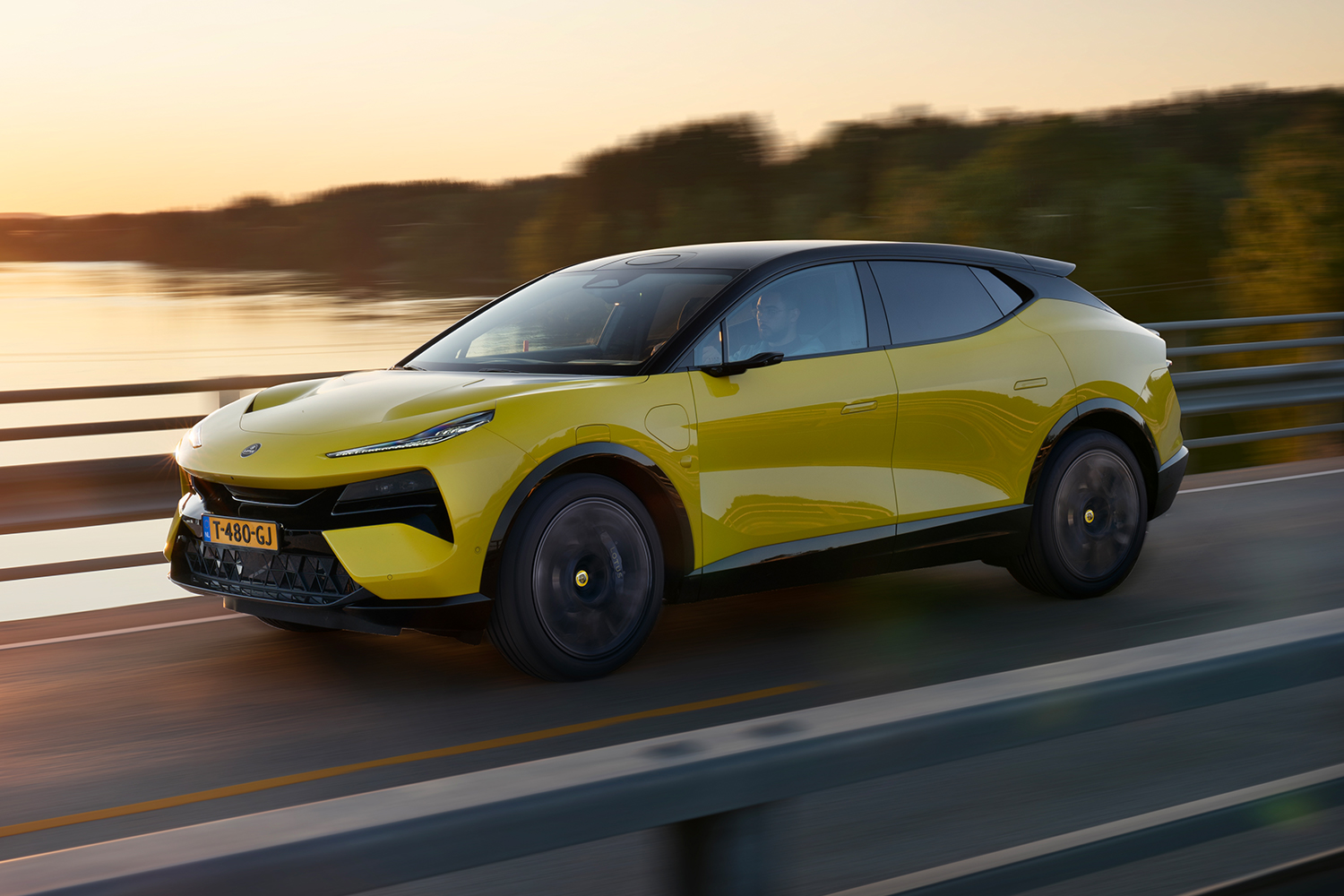
Lotus Eletre
If the Rolls-Royce Spectre is a pure continuation of the British brand’s luxury identity, the Eletre is a 180-degree reversal of Lotus founder Colin Chapman’s mandates about unrelenting lightness. By breaking yet another one of Chapman’s edicts by embracing an SUV format, the Eletre splits from the past to form a bold, brash, battery-powered vision of the future. While Chapman might be rolling in his grave, he should also be excited to know that the Lotus brand’s future will be bright if they can build more EVs as refined and fresh-feeling as the Eletre.
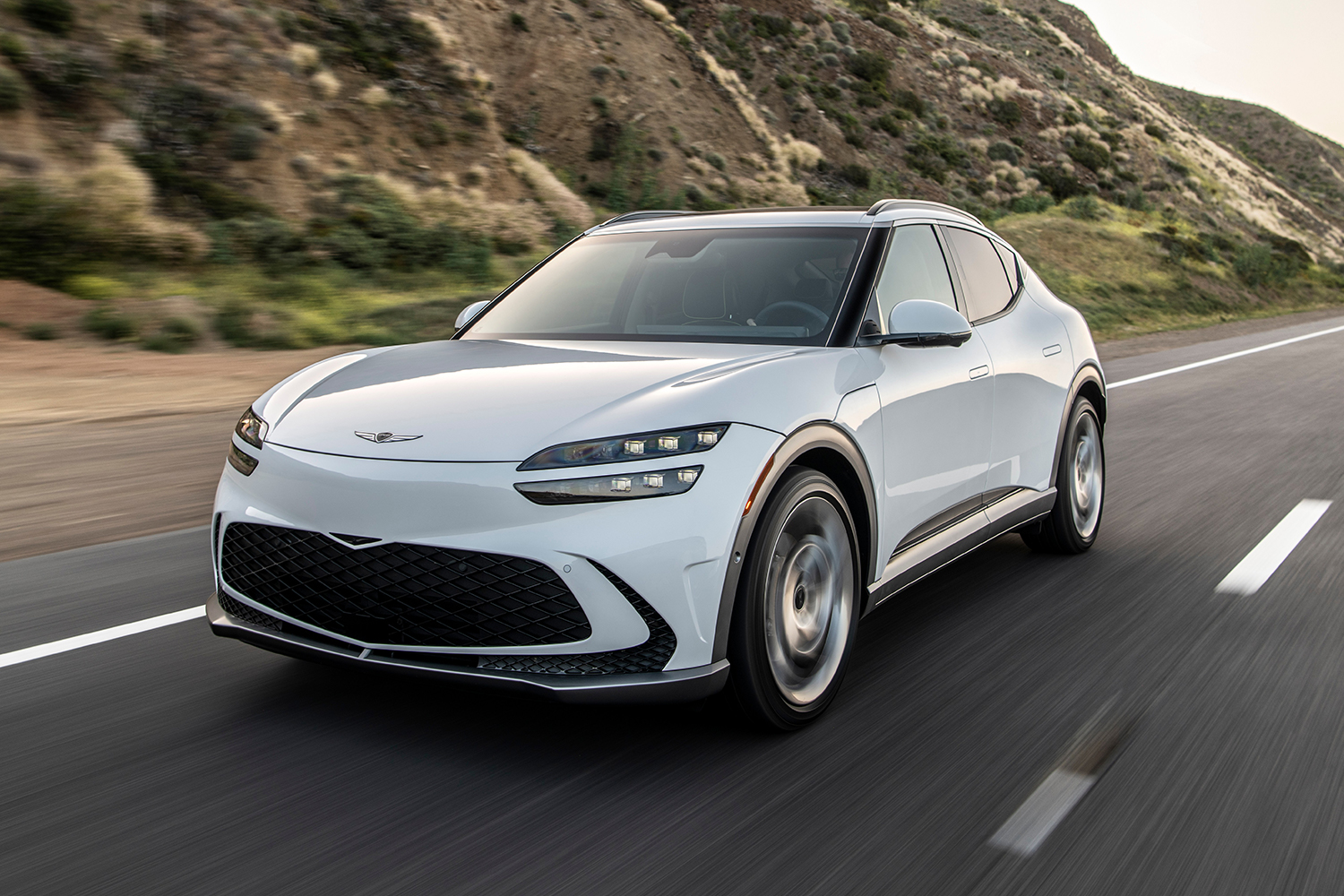
Genesis GV60
All too often, battery electric vehicles succumb to feeling like appliances. Genesis managed to upend that expectation with the GV60, which tackles the buzzkill crossover format while managing to provide an unpredictably giggly experience for the driver. Yes, it’s spacious; sure, it’s nicely finished inside. But I found myself taking particular delight in driving the GV60 because it’s eerily nimble and impressively quick, achieving 0 to 60 mph in a ridiculous 3.7 seconds according to one independent source.
Read our full review of the Genesis GV60 here.
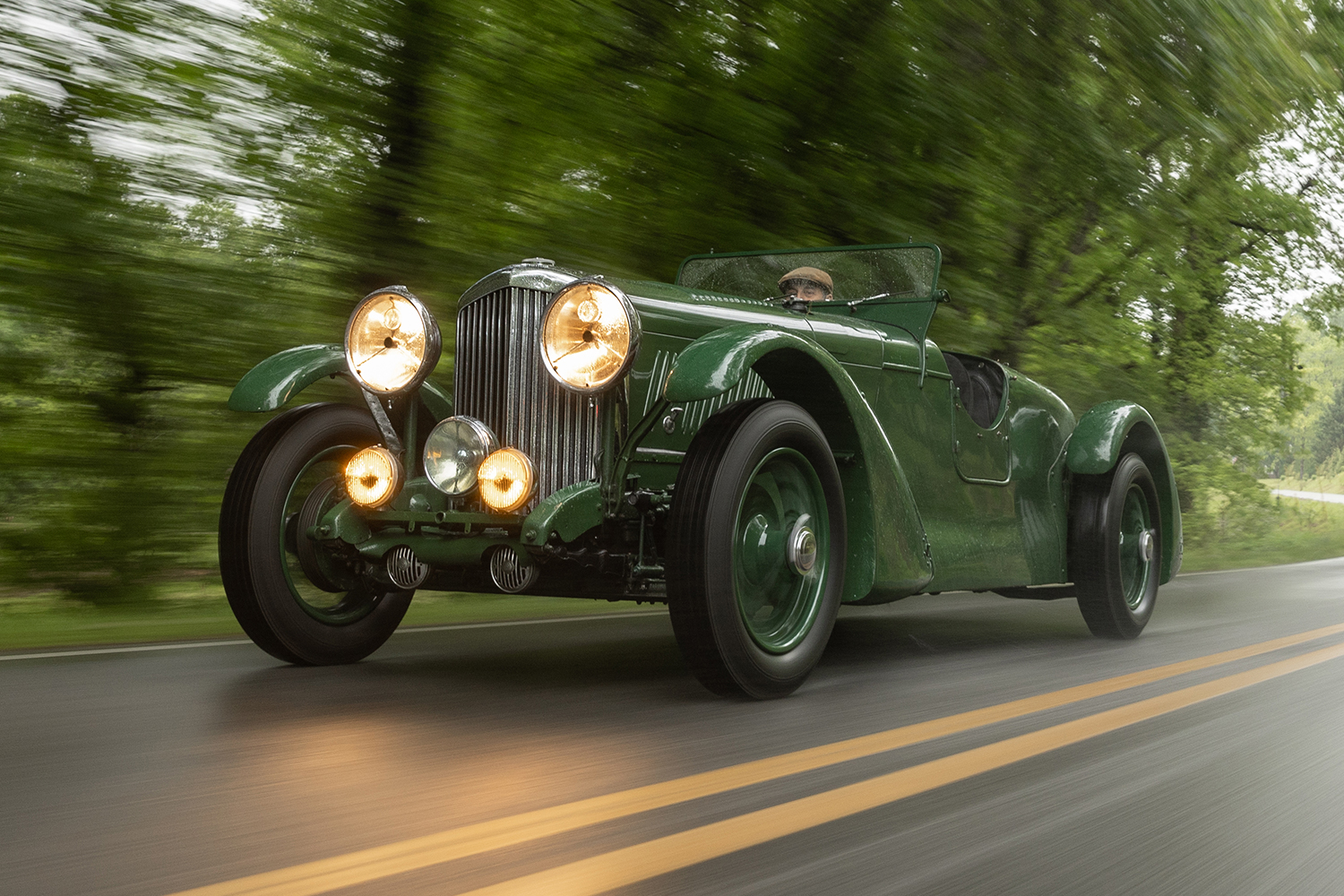
1933 Bentley 4 1/4-Litre “Eddie Hall”
The vast majority of cars from the 1930s earn a rightful reputation for driving like trucks. The 1933 Bentley 4 ¼-litre owned by the enterprising Eddie Hall escaped that fate because Hall, a wealthy gentleman racer, spent decades adding power, removing weigh, and making his regal Flying B capable of racing at the relentless 24 Hours of Le Mans. Remarkably, Hall finished 8th in the race in 1950; incredibly, he remains the only person in history to compete in all 24 hours as the sole driver, doing so at age 50 no less. Driving this very special machine, which is a part of the Revs Institute collection, made me unlearn everything I thought I knew about 1930s race cars. Lithe, lively and responsive, the “Eddie Hall” Bentley is about as good as it gets when it comes to obsessive owners bringing their dream machines to life.
This article was featured in the InsideHook newsletter. Sign up now.
